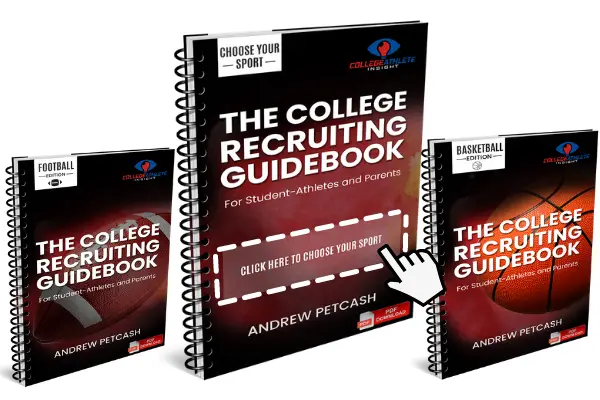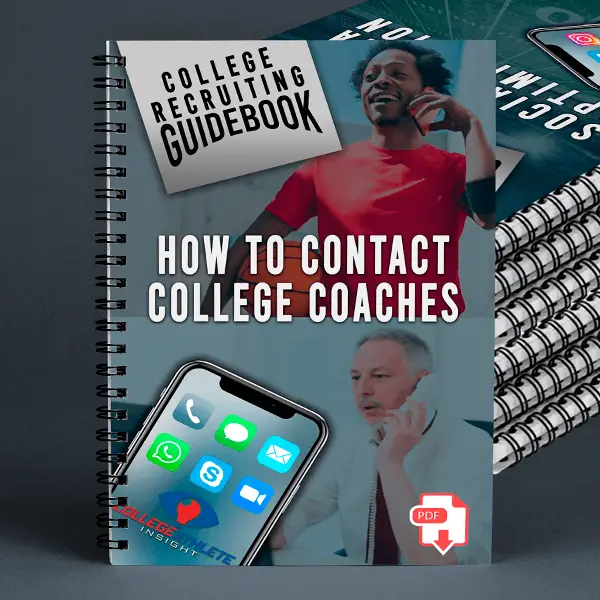An athlete in high school or college is always looking for the next best thing to give them a competitive edge. In this article we will focus on the pros and cons of specialized trainers and whether or not they are worth the investment.
Many athletes will use their high school weight program and then supplement it with lifting at another gym. Other athletes will seek out a trainer that can help them improve weak spots in their game before the next season.
This is an admirable quality that many coaches look for within their team. A coach will always rain praise down upon an athlete that works hard in the off-season and goes the extra mile.
A few Questions to Ask Yourself
But what is the RIGHT road to travel when going that extra mile?
When looking for that trainer to help you in the off-season, what qualities should you look for? How can you be sure that the trainer TRULY has your best interest at heart?
Are the trainers being honest? Will they follow through on what they say they will do? Are you being led on to believe that the strides you’ve made as an athlete are enough to get you that starting spot? Is the trainer there to make you better at your sport, or look “fire” on Instagram?
I have an interesting take here. Being that I am in the business of specialized training, I have an inside look at it, and it’s the business I love so much.
There are some GREAT coaches out there that will do everything in their power to help an athlete build themselves into the best they can possibly be at their position.
There are also coaches that are in it for the wrong reasons. They want an athlete to succeed because they can use the success to favor their business, rather than praise their player for their work ethic.
I’m hoping this article will help you choose the trainer that is right for you.
Pros of using a specialized trainer
There are myriad of positive things that come from going to a specialized trainer.
Many of the trainers out there have extensive experience in their area of expertise. Strength and speed coaches in my area have a college degree in exercise science, are certified personal trainers, or have even worked their way towards becoming a certified strength and conditioning specialist (CSCS).
These men and women have developed their philosophies and based them off of hours of studying, training others, and personal experience. A lot of these coaches are able to provide supplemental workouts to base them around your program’s workout regimen.
These trainers will know how to specialize a workout to improve a certain skill related fitness component. They will be able to tailor a workout to fit your goals and needs and increase your skills.
Trainers like this also know what weight training program you should be on. As well as supplements and protein that are best for you.
There are trainers out there that will give an athlete an honest opinion about what level they are capable of playing at. Not every athlete has the ability to play their sport at the Division I level.
The athlete may not have been given the best luck from the gene pool (I was a 5’11” 250 pound offensive lineman in college), or they are lacking some athleticism that would translate to a Division I scholarship.
These trainers that provide honest feedback are the best out there. They will do whatever they can to help their athlete succeed. I have seen trainers tutor athletes, give them rides to sessions or practices, put them in contact with college coaches, cut prices, offer free sessions, offer make up sessions, etc.
Position Specific Trainers
Position specific coaches are also a great route to get an edge on the competition.
My business partner and I run a company that is geared towards offensive and defensive linemen. Between the two of us we have 29 years of playing experience. Seven at the NCAA Division III level and 19 years of coaching experience.
Many of the trainers/coaches in all sports have similar resumes that will give an athlete a different perspective on technique. Trainers/coaches are going to focus on the intricacies of the position you play, and make sure that you are efficient in your movement. These trainers also have a network that is available to them to get your name out there to colleges.
Trainers that specialize in your sport(s) will also have a pipeline to various camps around the nation. I was recently invited to coach at the Rise and Fire Camp in Los Angeles, where they will host linemen for the first time.
I have put these camps, and many other camps like it, on the radar for my linemen to attend. Camps are a great way to get exposure to college coaches, make a highlight for social media, and build your athletic resume. Many of these camps employ trainers that are elite coaches at their position. They can provide an athlete with useful insight on how to get to the next level.
While there are trainers that will go above and beyond to help their athletes succeed, there are also some that will not.
The College Recruiting Guidebook
The college recruiting guidebook is the ultimate manual to earning an athletic scholarship for student-athletes and parents.
How would a $50,000/year athletic scholarship change your families life?
Inside the guidebook you’ll have access to:
- step-by-step instructions freshman through senior year
- every single college coaches email in the country (broken up by division and school)
- sample email/dm/text templates you can use
- a manual for parents on how to negotiate scholarships/financial aid with college coaches
- access to an array of bonuses you won’t find anywhere else
Parents will pay $20 just for admission in to their kids game. You can get this guidebook for the same price.
The college recruiting guidebook could literally change your families future!
Cons of going to a specialized trainer
While I’d love to say that going to a specialized trainer is the best idea in the world (and believe me, I’d love to have every lineman in the Chicago area come to me for training), there are definitely some cons. Not every single trainer out there is for you, the athlete.
There are, unfortunately, some trainers that want the money that comes with it. They overbook their group sessions and charge an astronomical amount of money.
They take away their ability to coach you in your position because there are 75 other athletes getting work in. These trainers merely want the paycheck that comes with being a “trainer”. They try and rake in as many clients as possible, and when an athlete breaks into the spotlight they point and say “I did that”.
Trainers Riding Your Back for Business
Trainers will use their athletes to bolster their resume without giving the athlete credit. I’ve seen multiple trainers across the country use an athlete as their poster-child without saying that the athlete busted their tail to get there.
These trainers merely want to ride the coattails of their athletes and use their hard work and fame to draw in more clients.
I won’t say that it’s bad to ask an athlete to use their images in a post, or to say “yeah, I trained this person and I’m extremely proud”. However, there are trainers that will take away an athlete’s drive, and place the athlete’s success solely on the trainer’s shoulders. Trainers will use social media to promote their own success, while stripping the athlete of theirs.
False Propaganda
There are trainers out there that will lie to their athletes about what level they can play their sport. I have seen trainers tell a kid that they are a clear Division I player, when in reality they were a 6’4” 250 pound power forward. I think it’s pretty clear that at 250 pounds, a power forward better be built like LeBron James and be 6’8” to play at the Division I level.
Too often, these trainers will lie to their athletes about their size, speed, strength, and ability to keep them coming back for more sessions. There is no honor or respectable qualities about a trainer that does that.
Many trainers will use hack techniques or ridiculous drills to create the next viral video. There is something to be said about speed ladder videos, change of direction videos, footwork videos, etc. They have their place in training.
However, these trainers will put together four to five drills and have their athletes rep the drill to perfection. Then they post the drill on instagram, twitter, facebook, etc. to garner likes, comments and interest.
There are trainers that don’t care about whether or not their drills transfer into on field movement, they just want you to look good for their internet following. These are the same trainers that will argue that their technique is the only way that an athlete will get the job done. They will also say it’s wrong if the athlete’s high school/college coach is using a different technique.
So How Do I Choose the correct trainer?
So how should you choose your trainer? The answer is simple.
As an athlete, you need to be aware of what your specialized trainer stresses. Do they stress getting the competitive edge and actually work with you during their sessions? Do they stress getting quality reps over the quantity of reps?
Does their vision of your success align with yours? Is your trainer being realistic with you? As an athlete you also need to be aware of the language that your trainer is using.
Are they building a positive culture around you? Are they trying to make every rep a highlight rep? Do they exude an aura of confidence that is backed up by knowledge, or are they cocky?
Do they respect other trainers in their business?
There are 3 other companies that train linemen in Illinois. At one point or another, I’ve worked with all 3 companies and enjoyed working with them. We have a mutual respect for each other, and actually plan on doing crossover training sessions with one another.
If a coach can respect others in their area, especially if the other people are direct competitors, it shows they care for what they do and how they go about their business.
The short version? Pros and Cons of Specialized Trainers
Make sure that the trainer you go to is a good person. You also want them to have your best interest in mind. Make sure that the trainer is honest, caring, knowledgeable, and has a drive to help the athlete succeed first, not themselves.
Should you choose a specialized trainer, make sure they will help you be the best you can be on and off the field.
My Experience:
To be honest, I don’t know if I would have played Division One basketball if it wasn’t for my strength trainer and AAU coach.
My strength trainer had a little garage in his backyard I use to go lift at 3 times a week. The workouts were unconventional, but effective.
They helped me improve my strength, vertical leap, and overall athleticism.
My AAU coach held invite-only group workouts 2 times a week with top high schoolers and college players (sometimes even pros). Playing against better competition – especially hoopers who are bigger, faster, stronger, and more athletic than you is important.
Both shaped me athletically and as a basketball player in a positive way.



